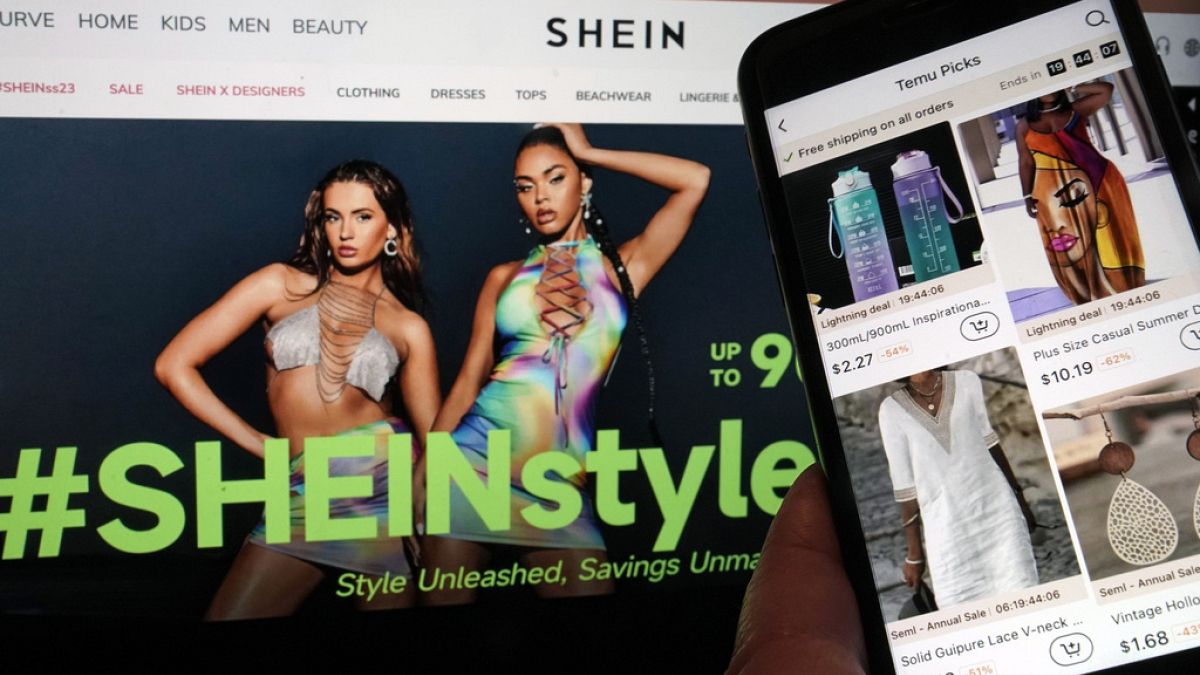France is one of a quartet of EU countries calling for legislation allowing for additional levies on clothing companies who use a cheap ‘fast fashion’ marketing strategy
Austria, Finland, France and the Netherlands have called on their EU peers to back tough measures to clamp down on the wasteful trend for cheap and disposable garments, by enabling governments to levy charges on firms whose marketing strategy promotes ‘fast fashion’ consumerism.
They make their case in a discussion paper, seen by Euronews, which has been circulated among national delegates ahead of a summit on 17 June where environment ministers are due to adopt their position on proposals to limit textile and food waste through amendments to the Waste Framework Directive (WFD).
“While the quantity of textiles consumed per capita in Europe has risen dramatically in recent years, the average use of a garment has fallen,” the joint statement runs. “Some studies even estimate that some consumers throw away their cheap clothes after seven or eight uses.”
It cites estimates that the number of garments sold doubled to 100 billion a year between 2000 and 2015, reflecting a huge drain on resources and a situation where the industry accounts for a fifth of global water pollution and 10% of greenhouse gas emissions, set to rise to over a quarter by 2050 on current trends.
The countries call for Europe to “seize the opportunity” of the ongoing reform to EU waste prevention legislation and the Ecodesign Regulation adopted last month to “introduce in EU law concrete measures to combat the commercial practice of ultra-fast fashion”.
While ecodesign laws focus on making products more durable and repairable, France and its partners point out in their note that recent research suggests only around a third of clothes are disposed of because of wear and tear.
The four EU members call for specific recognition of the impact of ‘fast fashion’ marketing strategies in the extended producer responsibility schemes intended to make companies pay for the mess they make, and propose a last-minute amendment of the Waste Framework Directive proposal.
“Member states may require the producer responsibility organisations to make use of EPR fee modulations based on the extrinsic durability of products, such as the number of textiles references placed on the market and the frequency of renewal of textiles collections coupled with a volume threshold of products per collection,” they suggest.
Environmental campaigner Theresa Mörsen, a policy officer with the Brussels based NGO Zero Waste Europe, described the joint statement and the forthcoming EU Council vote as a “pivotal moment” in the fight against discarded textiles and resource depletion.
“These nations are taking the lead in addressing the core of the crisis: the sheer volume of textiles flooding the market,” Mörsen said. “The ‘polluter pays principle’ must be upheld to shift our focus from merely managing waste to holding producers accountable.”
Paris is currently elaborating national legislation to rein in the commercial practices of companies such as the Shein and Temu, two Chinese-owned clothing retailers whose exponential growth means they recent became subject to tough digital services rules applied to online platforms with more than 45 million monthly users in the EU.
Under a draft law approved with unusual unanimity by the lower house of the French parliament in March, an environmental footprint-based levy of up to €5 per item, rising to €10 by 2030, would be raised on every fast fashion item sold. The bill would also ban both direct and indirect marketing of such products, including the use of influencers.
The European Parliament has already adopted a tough stance on the proposed revision of the waste directive. Even if the Council reaches a joint position this month, final negotiation of the EU legislation is unlikely to begin before September.

